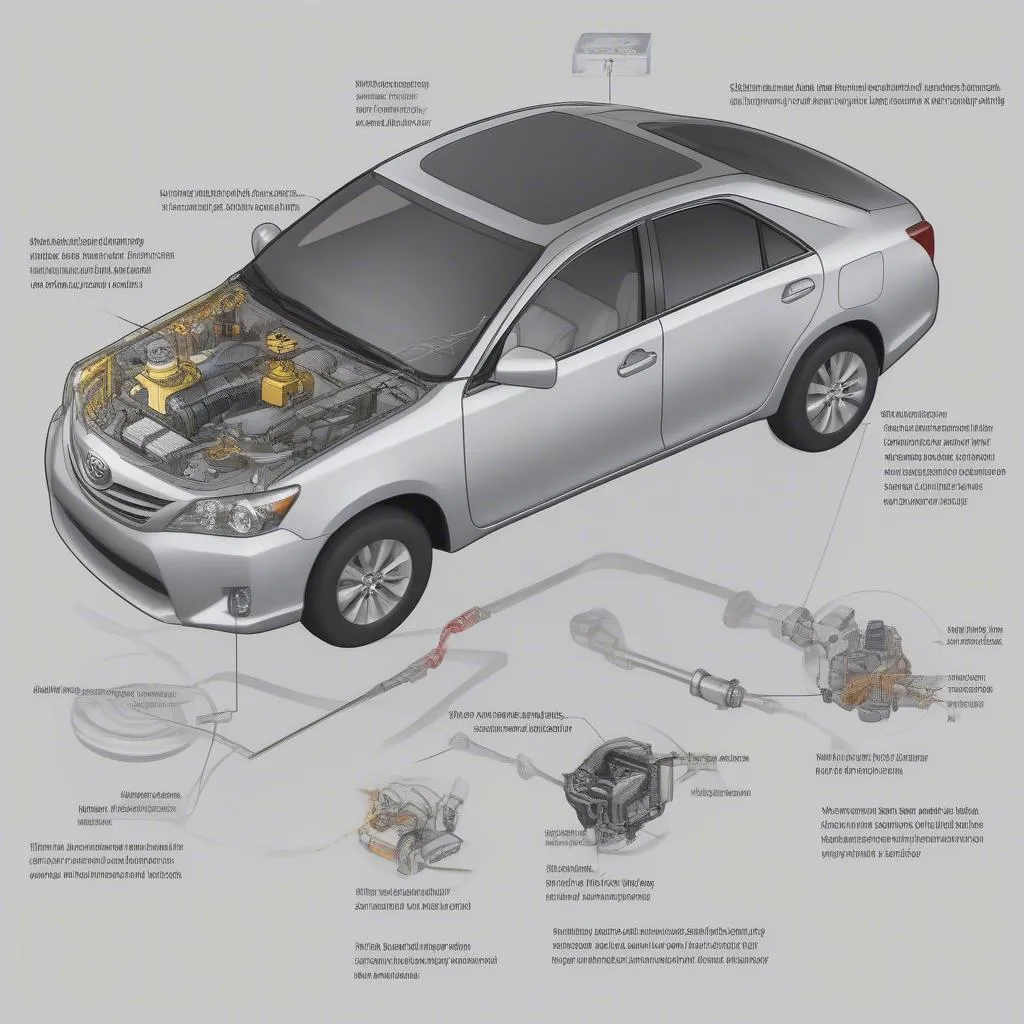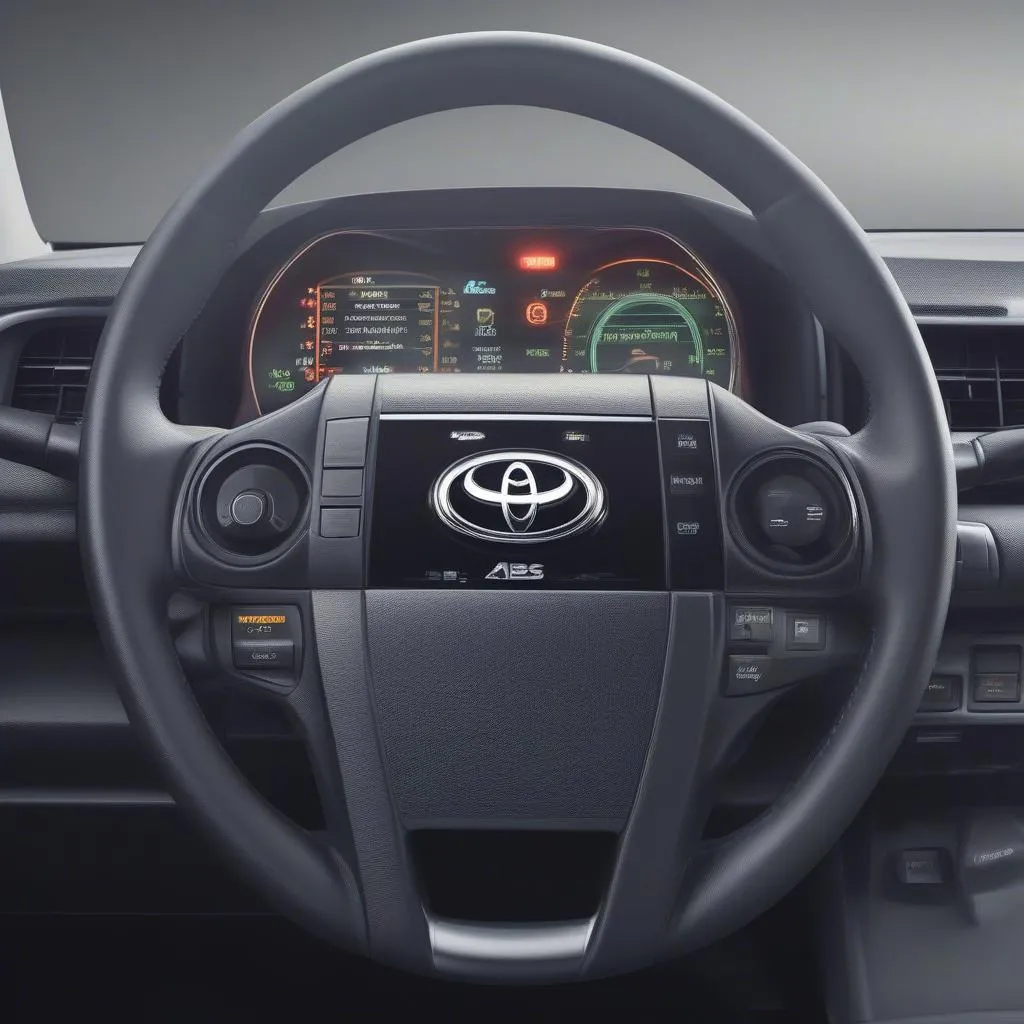Have you ever been driving down a slippery road and felt your car start to skid? It’s a scary experience, and one that can be even more dangerous in an emergency situation. Thankfully, most modern cars are equipped with an Anti-lock Braking System (ABS) to help prevent this from happening. But what exactly is ABS, and how does it work? What if your Toyota’s ABS light is on? That’s where we come in. In this blog post, we’ll discuss everything you need to know about ABS in your Toyota, as well as some common issues you might encounter.
What is ABS Toyota?
ABS is a safety feature that helps you maintain control of your vehicle during braking, especially in slippery conditions. When you slam on the brakes, the ABS system automatically pumps your brakes to prevent the wheels from locking up, which can cause your car to skid. By keeping the wheels turning, ABS allows you to maintain steering control and stop your car more safely.
How Does ABS Toyota Work?
The ABS system uses a combination of sensors, a control unit, and hydraulics. Here’s a simplified explanation:
- Sensors: These sensors are mounted on each wheel and detect the rotation speed of the wheel.
- Control Unit: This computer receives information from the sensors and determines if the wheel is about to lock up.
- Hydraulics: If the control unit detects a potential wheel lockup, it uses hydraulics to modulate the brake pressure, allowing the wheel to spin without locking up.
Why Is My ABS Light On in My Toyota?
Many different things can cause the ABS light to come on in your Toyota. Here are some of the most common reasons:
- Low Brake Fluid: If your brake fluid is low, it can affect the performance of the ABS system.
- Faulty ABS Sensor: A faulty ABS sensor can send inaccurate information to the control unit, causing the light to come on.
- ABS Control Unit Malfunction: The ABS control unit itself can also malfunction.
- Faulty Wheel Speed Sensor: Similar to ABS sensors, these sensors monitor your wheel speed. A fault here can trigger the ABS light.
- Wiring Issues: Problems with the ABS system’s wiring can also cause the light to illuminate.
- Wheel Bearing Issues: Although it’s not directly related to the ABS system, a bad wheel bearing can sometimes cause the ABS light to come on because of the misaligned wheel, influencing the wheel speed sensor.
How to Troubleshoot the ABS Light on Your Toyota
If your ABS light comes on, it’s important to get it checked by a qualified technician as soon as possible. However, you can try some basic troubleshooting steps yourself:
- Check your brake fluid level: If the fluid is low, add more fluid of the correct type.
- Inspect your ABS sensors: Make sure the sensors are clean and free of debris. You can use a wire brush or compressed air to clean the sensors.
- Check the wiring: Look for any loose or damaged wires in the ABS system.
If you have checked the brake fluid level, inspected the sensors and wiring, and the ABS light is still on, you will need to take your Toyota to a qualified mechanic for diagnosis and repair.
Common ABS Issues on Toyotas
While the ABS system is typically reliable, there are a few common issues that Toyota owners might face:
- ABS Light Stays On: As discussed previously, this can be caused by a variety of factors.
- ABS System Fails to Engage: This could be caused by a problem with the sensors, control unit, or hydraulics.
- ABS System Makes Noise: A clicking or grinding noise from the brakes could indicate a problem with the ABS system.
FAQs about ABS Toyota
Q: Can I drive with the ABS light on?
A: While you can still drive with the ABS light on, it’s not advisable. The ABS system is an essential safety feature, and driving without it means you lose this crucial safety protection. It’s best to have the issue diagnosed and repaired as soon as possible.
Q: How much does it cost to repair an ABS system on a Toyota?
A: The cost of repairing an ABS system on a Toyota can vary depending on the specific issue and the year and model of your car. In some cases, it might be a simple repair, while other issues might require more extensive work.
Q: Can I reset the ABS light myself?
A: While some DIY methods exist to reset the ABS light, you should only attempt them if you are experienced with vehicle repair. Often, these methods will only temporarily reset the light, and the underlying problem will still need to be addressed.
Q: How often should I have my ABS system inspected?
A: While there’s no set schedule, it’s good practice to have your ABS system inspected as part of your regular vehicle maintenance. This typically involves checking the brake fluid level, inspecting the sensors, and checking the wiring.
Q: Can I replace the ABS control unit myself?
A: Replacing the ABS control unit is a complex procedure that requires specialized knowledge and equipment. You should always have this work performed by a qualified mechanic.
Q: Can I drive a Toyota with a bad ABS sensor?
A: While you can drive with a bad ABS sensor, it’s not advisable. The ABS system is designed to work as a whole, and a faulty sensor can compromise the overall performance of the system, making it less effective at preventing wheel lockup during braking.
Conclusion
The ABS system is a crucial safety feature on any Toyota. Understanding how it works and what can go wrong can help you keep your car running safely and reliably. If you experience any problems with your ABS system, it’s important to get it checked by a qualified mechanic as soon as possible. Don’t wait! Contact us at Whatsapp: +84767531508 if you need any further advice or assistance with your ABS system. We are here to help you keep your Toyota safe and on the road.
 Toyota ABS System
Toyota ABS System
 Toyota ABS Light
Toyota ABS Light
 Toyota ABS Repair
Toyota ABS Repair